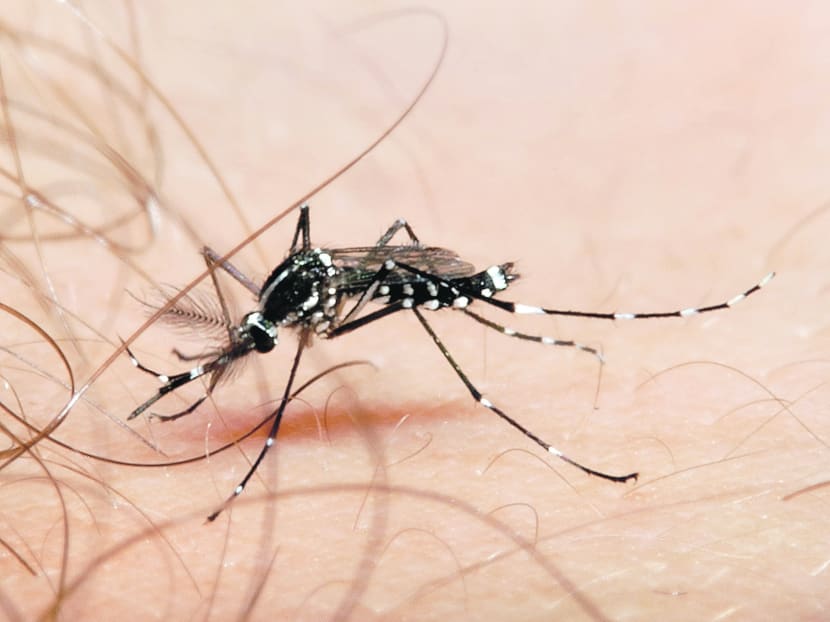Duke-NUS study shows promise for development of dengue vaccine
SINGAPORE — A study of how certain white blood cells — called T cells — respond to the dengue virus has yielded promising findings that may pave the way for a possible vaccine against the disease.
SINGAPORE — A study of how certain white blood cells — called T cells — respond to the dengue virus has yielded promising findings that may pave the way for a possible vaccine against the disease.
Such a vaccine could work by driving to a person’s skin the T cells that have been exposed to the dengue virus, so they can kill other cells that have been infected with the virus.
The five-year study was led by a team of scientists from Duke-NUS Graduate Medical School and the Yong Loo Lin School of Medicine at the National University of Singapore, and involved about 200 adult dengue patients aged 21 to 67 years old at Tan Tock Seng Hospital.
Blood was collected at three different stages — when the patient was first diagnosed, after the patient had his dengue-induced fever and after the patient had fully recovered.
The team found that T cells that have been exposed to the dengue virus will express a molecule, called cutaneous lymphocyte-associated antigen (CLA), each time they detect the virus in a person’s body.
Said the study’s lead author, Dr Laura Rivino, at a media briefing on the findings yesterday: “What we noticed is that (T cells) are programmed to go to the skin. They express what we can call an ‘address’ or a ‘postal code’ that is basically a protein on the surface of these cells that will guide the cells to the skin.”
Associate Professor Paul Macary of the Yong Loo Lin School of Medicine explained: “If you get a mosquito bite, these T cells will stop the further spread of the virus, because they will kill the cells infected with the virus very quickly on the skin.”
Last year, there were 18,335 dengue cases and five deaths. In 2013, a record 22,170 people were infected with dengue and seven died.
There have been efforts in recent years to develop a vaccine for dengue, with varying degrees of success. French drug company Sanofi has conducted large-scale clinical trials of its vaccine on animal and humans. About 1,200 Singaporean patients were involved in the second of such trials. The results from two studies that focused on children showed that the vaccine was less effective against dengue virus serotypes 1 and 2, which are the commonest types circulating in Singapore.
Assoc Prof Macary said other vaccines focus more on B cells, a type of white blood cell that makes antibodies that stop the virus from replicating in the body. On the other hand, T cells kill dengue-infected cells immediately, rather than simply stopping the virus from replicating.
The team plans to study whether the T cells that recognise the dengue virus are able to permanently reside on the skin for a long period of time, what factors are important for the generation of T cells on the skin and how to induce them during vaccination.
Correction: In an earlier version of this report, we stated that there were 17,600 dengue cases last year. The correct figure is 18,335 cases. We apologise for the error.







